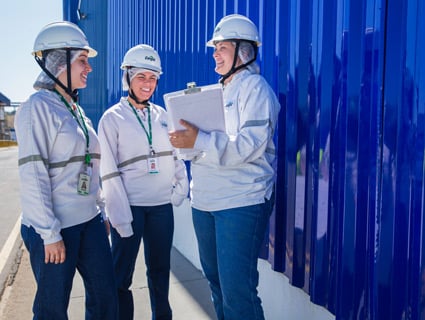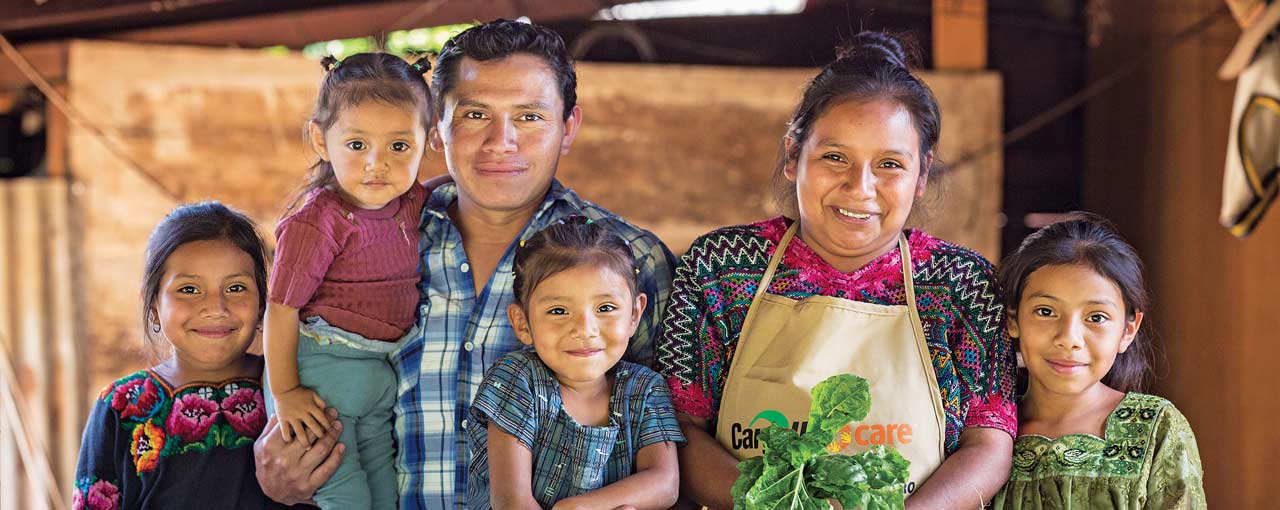Human Rights
Our Commitment
Cargill is committed to respecting internationally recognized human rights.
Human rights are fundamental at Cargill. We are committed to respecting the human rights of all Cargill employees and those whose lives and livelihoods we touch. This commitment is rooted in Cargill’s Guiding Principles. As a business operating across diverse supply chains and regions, we have the ability – and responsibility – to address human rights issues. Our actions are driven by our values and our culture of putting people first, championing action and embracing our responsibility to protect people and planet.
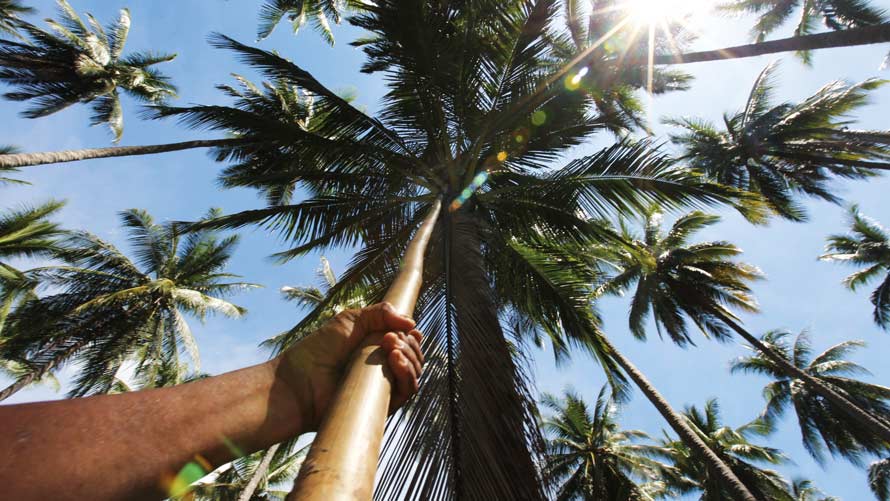
Our Approach
Our Human Rights Policy confirms our commitment to respecting internationally recognized human rights and also sets out our approach to addressing our salient human rights issues. These are the most pressing human rights issues with the greatest risk to people in our operations and supply chains: forced labor; child labor; land rights; health and safety; fair wages and working hours; and worker voice.
We seek to identify and address negative impacts where they occur and remediate those we have caused or contributed to. We also work on prevention by tackling the root causes of human rights issues.
Our human rights work starts within our own operations and supply chains, and we expand our efforts into communities. This community-driven approach helps us address the root causes of our most pressing human rights issues. By building economic opportunity and wellbeing and empowering women and vulnerable groups of people, we are able to scale human rights efforts across communities, not just for today but for a more sustainable, responsible food and agriculture industry for future generations.
Our efforts do not stop when we mitigate human rights risk in one area or region – as we know our industry is constantly evolving and our human rights approach will also continue to evolve.
Our approach is based on externally recognized frameworks such as United Nations Guiding Principles on Business and Human Rights (UNGPs), the International Bill of Human Rights and the International Labour Organization (ILO) Fundamental Principles and Rights at Work. We are also a signatory company of the UN Global Compact.
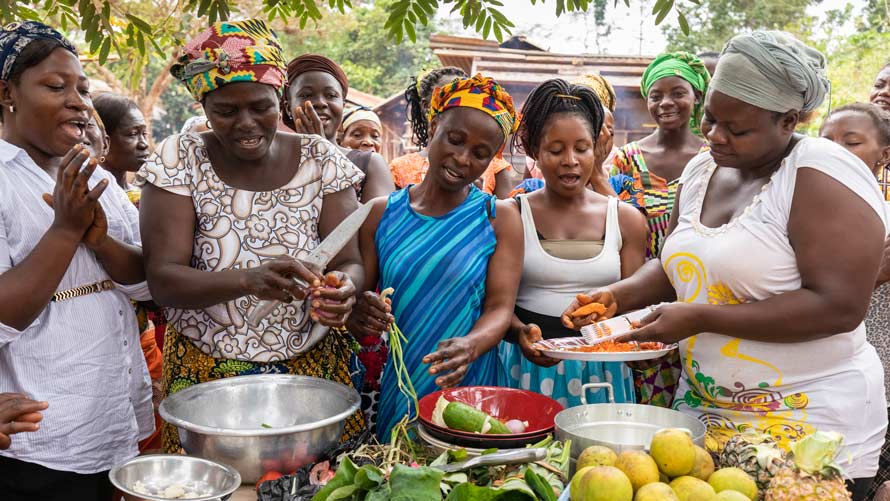
Cargill’s Salient Human Rights Issues
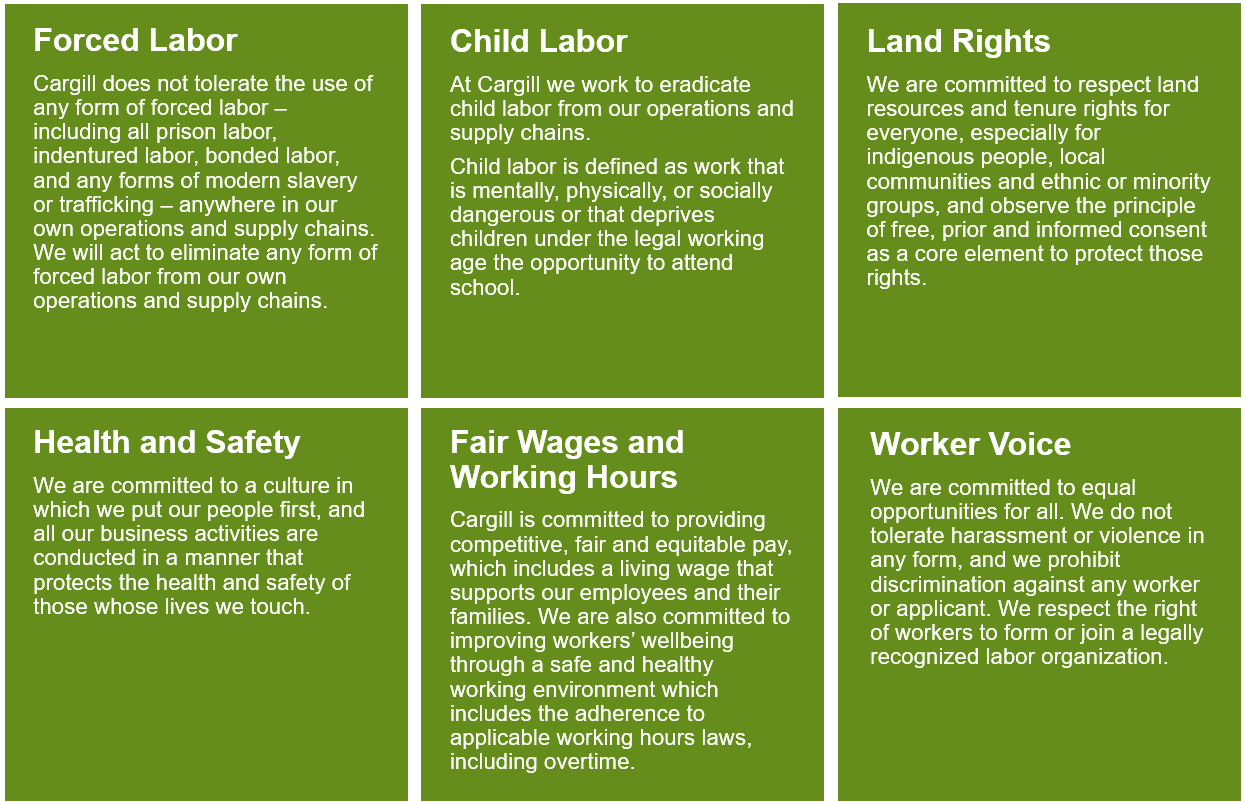
Cargill’s Corporate Due Diligence Policy
Cargill’s Corporate Due Diligence Policy brings clarity to our due diligence process for identifying risks and working to ensure our products are compliant. Our work in this area is supported by a multidisciplinary team to implement this process across our businesses. We are committed to regularly evaluating and strengthening our process to identify, prevent, mitigate, and remediate adverse human rights and environmental impacts within our own operations, supply chains, and business relationships.
Our Human Rights Work in Action
We prioritize our actions to address the most pressing human rights issues affecting our operations and supply chains. This includes approaches and actions that lead to positive change in the areas of child protection, responsible recruitment, working conditions, equity and women’s empowerment, and community wellbeing. We take a holistic approach to address the root causes of these issues and build economic opportunity.

Protecting children in the cocoa supply chain
Most of the world’s cocoa is grown on small family farms, and many cocoa growing communities live in poverty. In some situations, families may feel they have no other option than to have family members, including children, work on their farms because they are unable to pay formal workers. Since 2016, Cargill has used a Child Labor Monitoring and Remediation System (CLMRS), which we co-designed with the International Cocoa Initiative (ICI), to address child labor in the cocoa supply chain. CLMRS brings networks of local coaches and monitoring agents to visit farms year-round, working with families to raise awareness about the impact of child labor, identify incidents, and implement prevention and remediation programs. Cargill also works together with our partners to address the root causes of child labor by improving access to education, helping farmers to increase their incomes; expanding economic opportunities for women; and delivering programs that improve health, nutrition, and food security in cocoa communities. Our goal, by 2025, is to have a CLMRS in place to identify and address child labor throughout our direct cocoa supply chain, along with monitoring, prevention, and remediation approaches tailored for local needs.
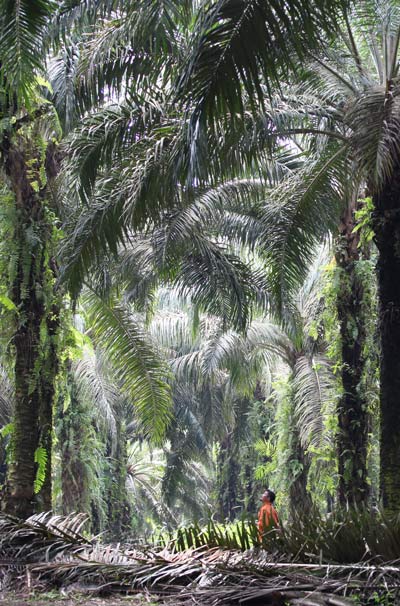
Recruiting responsibly in our supply chains
In Malaysia, Cargill works with Earthworm Foundation to help companies in our palm oil supply chain improve their labor and human rights practices through the Labor Transformation Program. The program’s goal is to generate long-term engagement with suppliers and improvement on social issues prevalent in the Malaysian palm oil industry, including recruitment practices, employment contracts, grievance mechanisms, freedom of movement, freedom of association, wages and working hours, health and safety, and access to safe accommodation. In 2022, the third year of implementing this program, we engaged with three high-volume mills on ethical recruitment and other key topics. A positive impact from these mill engagements has been the return of workers’ travel documents. Suppliers now have continuous improvement plans – informed by observations and findings from the engagements – to guide them in addressing labor issues within their operations.
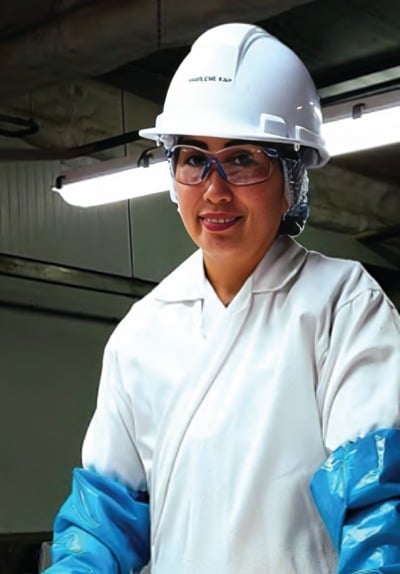
Recruiting responsibly in our operations
Since 2008, Cargill’s Canadian beef protein facilities have recruited more than 1,000 skilled migrant workers from outside Canada, with the majority from the Philippines. We align with the ethical recruitment principles identified within the International Organization of Migration, and because we believe that these workers can be valuable members of our business and our local communities long-term, we screen for workers that will meet the requirements for permanent residency in the future. We also invest time and resources in enabling a smooth transition for these workers, connecting them to affordable housing and making them aware of community resources and local services. In addition to providing on-the-job training, we also recruit experienced migrant workers who are already trained in skilled labor, specifically industrial butchers and meat cutters, which is helping to fill a skills gap in the local workforce.
News Highlights
My grandfather’s legacy: Why I choose to champion human rights, every day
Cargill’s refreshed human rights policy is helping us address the most pressing human rights issues facing our operations and supply chains.
Read Time: 3 minutes
CLAP program gives cocoa farmers land ownership documents and peace of mind
CLAP is a partnership between high-quality field data solutions provider Meridia, the Ivorian government, and cocoa industry companies like Cargill to help farmers gain clear land ownership documents – a process that can often be cumbersome and expensive.
Safe innovations: 3 new ways Cargill is innovating to keep our employees safer
Technology and new tools are helping Cargill employees work more safely around the world.
Read Time: 3 minutes
What is child labor — and how are we addressing it?
We’re partnering with stakeholders across the globe to make an impact on child labor.
Read Time: 5 minutes
How we are helping women by advancing gender equality in the cocoa sector
When women have more opportunities and support, family nutrition, children’s education and family incomes go up, while social such as child labor and environmental risks go down.
'A huge responsibility' How Cargill is helping seafarers navigate the rough waters of COVID-19.
We have shown we can use our voice, our leadership, to move standards forward and improve situations for seafarers around the world.
Read Time: 3 minutes

